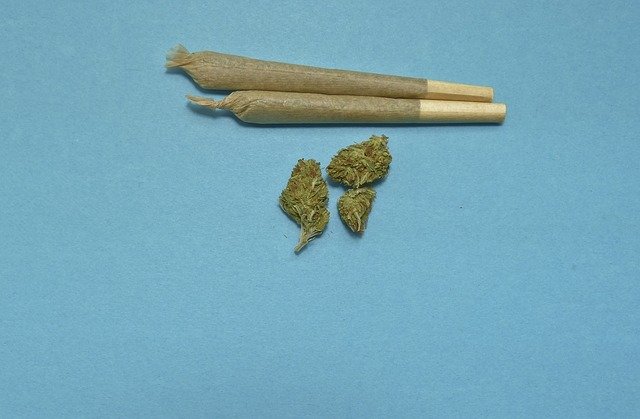By ALLISON MOLLENKAMP
Capital News Service
ANNAPOLIS, Md. — Maryland should be collecting data on cannabis use before adult recreational use is legalized, experts told a state panel last week.
Recreational cannabis is expected to be a major topic for the Legislature in the 2022 session; Maryland already allows medical cannabis use.
The House Cannabis Referendum and Legalization Workgroup is gathering information on factors such as health and criminal justice.
Over a dozen states have legalized recreational marijuana.
Virginia is in the early stages of legalization with plans to move toward commercial sales in 2024.
Neighboring Washington, D.C., allows for possession and cultivation of marijuana, but does not yet allow the sale of recreational cannabis.
According to a Goucher College poll released Tuesday, 60% of Marylanders support legalizing marijuana for adult use.
The House Cannabis Referendum and Legalization Workgroup met with three experts to discuss the health effects of cannabis legalization.
Collecting data before potential legalization of adult-use would allow for comparison afterward.
Two of the areas addressed were youth use and motor vehicle accidents, where experts said that current data is incomplete.
On impaired driving, experts pointed to the potential undercounting of drivers under the influence of THC, a chemical found in marijuana.
Undercounting before legalization could lead to a greater perceived increase after.
Taylor Kasky, director of policy and government affairs for the Maryland Medical Cannabis Commission, said when someone is suspected of impaired driving, law enforcement may not be looking for cannabis.
“You’re immediately just testing for alcohol because it’s the easiest,” Kasky said. “They don’t often go the next step to then test for cannabis.”
Dr. Patricia Frye, an affiliate associate professor at the University of Maryland School of Pharmacy, told Capital News Service officers should look for the effects of cannabis rather than the chemical presence of the drug.
“Just because someone tests positive for cannabis doesn’t mean they were impaired by cannabis at the time of the accident,” Frye said.
She suggested if someone is pulled over under suspicion of impaired driving, law enforcement should evaluate their coordination, balance and reaction time.
On underage use, Frye said most data comes from surveys, and the youth of the participants can affect the data.
“Adolescents in particular, if they think something’s gonna get them in trouble, they may not be truthful,” Frye said.
Whether or not people use cannabis isn’t the only data point needed, though.
Dr. Susan Weiss, director of the division of extramural research at the National Institute on Drug Abuse, said in an email that collecting data on frequency of use, type of product and reasons for use is important.
The Maryland Department of Health collects this information, but Weiss said they could do more.
“In addition, it would be helpful to gather data on the type of product being used – whether it is mostly CBD, mostly THC, or both.”
Weiss said the type of product can be related to the reason for use, whether it be medical or recreational, but people don’t always accurately report what they’re using.
“The risks are very different for mostly THC vs. mostly CBD products.”
Requests to the Legislature for more cannabis data are not new, according to Del. Robin Grammer, R-Baltimore County.
Grammer said a representative from the Brookings Institution previously brought up the issue.
In January of 2020 the Maryland Legislature considered a bill, sponsored by Grammer, to collect additional data; it didn’t make it out of committee.
Grammer said drafting the bill was challenging.
“It’s a little bit overwhelming when you start to think about, how are you going to get comprehensive data about marijuana use?”
Grammer has consulted experts about exactly what data would be good to collect.
“What we really need right now is for everybody who has an interest in the scope of the policy or the data to get specific about what we should be tracking,” Grammer said.
The House Cannabis Referendum and Legalization Workgroup is scheduled to meet virtually Wednesday at 10 a.m.




I would love to see the data that was used to justify criminalizing cannabis in the first place, but sadly it does not exist. So why did we criminalize it? This quote from Harry Anslinger, the first director of the Federal Bureau of Narcotics, gives you a good idea. “There are 100,000 total marijuana smokers in the US, and most are Negroes, Hispanics, Filipinos, and entertainers. Their Satanic music, jazz and swing, results from marijuana use. This marijuana causes white women to seek sexual relations with Negroes, entertainers, and others.” But now we need data to role back this racist policy?